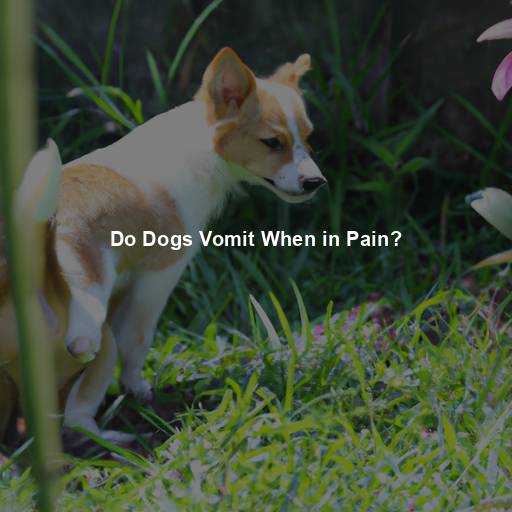Why Can’t Dogs Eat Xylitol?
Last Updated on November 5, 2023 by Evan
Contents
- 1 Understanding the Danger of Xylitol for Dogs
- 1.1 What is Xylitol?
- 1.2 Why is Xylitol Dangerous for Dogs?
- 1.3 Symptoms of Xylitol Poisoning in Dogs
- 1.4 The Lethal Dosage of Xylitol for Dogs
- 1.5 Common Products Containing Xylitol
- 1.6 Immediate Actions for Xylitol Ingestion
- 1.7 Treatment for Xylitol Poisoning
- 1.8 Preventing Xylitol Poisoning in Dogs
- 1.9 Unintentional Xylitol Exposure
- 1.10 Xylitol and Dental Health
- 1.11 Xylitol and Liver Damage
- 1.12 Xylitol Alternatives for Dogs
- 1.13 Spread Awareness and Protect Your Dog
- 1.14 Neurological Damage
- 1.15 Delayed Onset of Symptoms
- 1.16 Xylitol in Medications and Supplements
- 1.17 Special Considerations for Small Breed Dogs
- 1.18 Xylitol and Chewing Gum
- 1.19 Xylitol-Free Alternatives for Dogs
- 1.20 The Importance of Veterinary Care
- 1.21 Advocacy and Education
- 2 FAQs – Why can’t dogs eat xylitol?
Understanding the Danger of Xylitol for Dogs
Discovering the hidden risks that lurk beneath the innocent sweetness of xylitol is a wake-up call for any conscientious pet parent. While we delight in this popular sugar substitute, it is sobering to realize that our four-legged companions are in grave danger if they indulge in this seemingly harmless treat. Join us as we unravel the perplexing depths of the xylitol dilemma, shedding light on the dire consequences it can have on the well-being of our beloved furry friends.
What is Xylitol?
Xylitol is a naturally occurring sugar alcohol that is widely used as a sugar substitute in many food and personal care products. It is derived from various sources, including fruits, vegetables, and even birch tree bark. With its low glycemic index and tooth-friendly properties, xylitol has gained popularity in recent years as a healthier alternative to sugar.
Why is Xylitol Dangerous for Dogs?
Although xylitol seems innocuous to us humans, it poses a serious threat to our beloved dogs. The perplexing part lies in how our furry friends metabolize this sugar substitute differently from us. Once ingested, xylitol triggers a burst of insulin in dogs, causing a sudden plunge in their blood sugar levels, a condition known as hypoglycemia. This puzzling reaction can manifest in as little as half an hour, putting our pets at risk of a potentially life-threatening situation if not promptly treated.
Symptoms of Xylitol Poisoning in Dogs
It is of utmost importance to familiarize ourselves with the distinct manifestations of xylitol poisoning, for the sake of our beloved furry companions’ timely intervention and overall welfare. The indicators exhibited in such cases may differ, contingent upon the extent of xylitol consumption, yet customary symptoms may encompass:
If you’ve ever experienced the dreaded sensation of your stomach lurching, followed by a sudden and involuntary expulsion of your last meal, then you’re familiar with the spontaneous act of vomiting. It’s a perplexing bodily reaction that can leave you feeling physically and emotionally drained, often leaving you questioning the cause and seeking ways to alleviate the discomfort it brings. Whether it’s a result of food poisoning, illness, or simply an overindulgence in questionable culinary choices, the unpredictability and burstiness of vomiting can throw even the most composed individuals into a state of unease.
Have you ever experienced a time when your motor skills suddenly abandoned you, leaving you floundering and bewildered? It’s a perplexing phenomenon, this loss of coordination, when every movement becomes an erratic and unpredictable dance. Whether it’s a stumble on the sidewalk or a dropped glass, these bursts of clumsiness leave us feeling both frustrated and puzzled by our own bodies. So next time you find yourself fumbling for words or tripping over your own feet, remember that even the most coordinated among us can experience moments of delightful disarray.
3. Weakness
4. Lethargy
In a world that seems to be constantly shaking, one phenomenon stands out: tremors. These unpredictable vibrations challenge our understanding of stability and leave us in a perpetual state of alertness. From the ground beneath our feet to the rumblings within our souls, tremors remind us that life is a complex and ever-changing journey. Join us as we delve into the depths of this enigmatic force and explore the profound impact it has on our lives.
Seizures, a mysterious and bewildering neurological condition that continues to baffle scientists and medical experts alike. With their unpredictable and sudden nature, seizures leave those afflicted and their loved ones in a state of constant unease and perplexity. The enigmatic origins of seizures only add to the complexity of understanding and treating this perplexing disorder. Despite ongoing research and advancements in medicine, the bursts of electrical activity in the brain that cause seizures remain a fascinating and challenging puzzle waiting to be solved.
7. Coma
If your furry companion has potentially consumed xylitol or is exhibiting any of these telltale signs, it is of utmost importance to promptly seek professional guidance from a qualified veterinarian. Acting swiftly is crucial to ensure the well-being and health of your beloved pet.
The Lethal Dosage of Xylitol for Dogs
When it comes to dogs and xylitol, the math is anything but ordinary. A mere 0.1 grams of this sneaky substance per kilogram of their furry body weight can unleash a storm of hypoglycemia. Picture this: a minuscule piece of xylitol-packed gum has the potential to turn into a lethal weapon for the tiniest of our four-legged friends.
Common Products Containing Xylitol
Xylitol can be found in a wide range of everyday products, some of which may come as a surprise. To ensure the safety of your furry companion, it is essential to be vigilant and check ingredient labels. Common products that may contain xylitol include:
Chewing gum has been a source of delight and intrigue for generations, captivating individuals with its unique burst of flavor and perplexing ability to satisfy the oral fixation. From its humble beginnings as a simple sticky substance to its evolution into a myriad of irresistible flavors and textures, chewing gum continues to bewilder us. Its enigmatic properties, like its ephemeral nature and malleability, add to its allure, leaving us puzzled by the sweet and chewy enigma that is gum.
As we navigate through this bustling and ever-changing world, often caught up in the whirlwind of our daily routines, it becomes essential to take a moment to pause, reflect, and refresh. Enter the humble breath mint – a small yet powerful companion that can transform any mundane moment into a burst of fresh bliss. With its tantalizing flavors and invigorating properties, this pocket-sized marvel is just what we need to awaken our senses and add that delightful touch of perplexity to our lives. Let go of the ordinary and embrace the extraordinary, as each breath mint offers a surprising burst of flavor, leaving you with a perplexed smile and a renewed sense of vitality.
Indulge in a delectable array of sweet treats that will tantalize your taste buds and ignite your senses. From creamy chocolates to sugary confections, our curated selection of candies offers a burst of flavor that is simply irresistible. Prepare to enter a world of delightful perplexity as each bite unveils a unique combination of textures and tastes, leaving you craving for more. Discover the enchanting allure of these sugary delights, perfect for satisfying your sweet tooth and adding a touch of sweetness to your day.
Indulge in the delightful world of irresistible treats, where the aroma of freshly baked goods fills the air and the anticipation of savoring each delectable bite leaves you in a state of mouthwatering wonder. From golden-crusted pies that beckon with their flaky allure to moist, melt-in-your-mouth cookies that tempt even the strongest willpower, embark on a culinary adventure that will leave you happily lost in a world of sugary enchantment. Experience the burst of flavors, the delicate textures, and the perplexing variety that emerges as the flour, butter, and sugar dance together harmoniously in ovens around the globe, creating a symphony of tantalizing sensations that are simply impossible to resist. So surrender to the bewitchingly bewilderment of baked delights and let your taste buds revel in the joyous perplexity that only a perfectly crafted pastry can evoke.
– Peanut butter
Discover the secret to a dazzling smile with our latest toothpaste innovation! Packed with an extraordinary blend of ingredients, this toothpaste guarantees to leave your teeth feeling refreshingly clean and your breath irresistibly minty. Say goodbye to dental woes as this incredible toothpaste tackles plaque, whitens your teeth, and protects your enamel, all while delivering a burst of invigorating freshness that will leave you longing for your next brush! Experience the perplexity of outstanding oral care that will leave you smiling from ear to ear – simply magical!
Freshen up your breath and elevate your oral hygiene game with our range of mouthwashes. Say goodbye to unpleasant odors and hello to a burst of minty freshness that will leave you feeling revitalized. Experience the perplexing sensation of a tingling clean, as our carefully crafted formulas work their magic to combat bacteria and promote a healthy, confident smile. Elevate your daily routine with an invigorating swish of our refreshing mouthwashes.
– Sugar-free beverages and snacks
– Medications and supplements
When it comes to the safety of our furry friends, every pet parent knows that caution is key. It’s crucial to take a moment and carefully read the labels on products, ensuring we understand any potential risks involved. Taking this extra step safeguards against any unfortunate situation where our beloved dogs might accidentally consume something they shouldn’t. With a little vigilance and awareness, we can create a home environment that prioritizes our canine companions’ well-being.
Immediate Actions for Xylitol Ingestion
If you suspect your dog has consumed xylitol, it is crucial to act quickly. Time is of the essence in preventing potentially life-threatening complications. Here are the immediate actions you should take:
If you find yourself in the distressing situation of your furry friend snacking on xylitol, don’t waste a moment – reach out to a veterinarian pronto! Grab your phone and dial up your trusted vet or an emergency clinic, ensuring you furnish them with all the vital details about the xylitol consumption and any peculiar symptoms your pooch is experiencing. Hurry, help awaits!
When it comes to xylitol ingestion, inducing vomiting may not be the way to go. Unlike other toxic substances, it’s a bit perplexing that vomiting might not be recommended in this case. However, rest assured that your veterinarian, who understands the intricacies of the situation, will be there to provide guidance on the best course of action specific to your pet’s circumstances.
3. Monitor Blood Sugar Levels: If possible, check your dog’s blood sugar levels at home using a pet glucose meter. However, do not delay seeking professional veterinary care while waiting for the results.
Treatment for Xylitol Poisoning
When you bring your beloved canine companion to the veterinary clinic, rest assured that they will be met with swift and decisive medical intervention aimed at mitigating the perplexing repercussions of xylitol poisoning. The experienced veterinarians and dedicated staff will employ a range of treatment options, tailored to address the unique needs of your dog. From targeted medications to closely monitored care, every effort will be made to restore your furry friend to their sprightly and vibrant self.
When it comes to maintaining stable blood sugar levels, intravenous fluids have emerged as a crucial form of administration. This method of delivery, known for its direct impact, works wonders in keeping those sugar levels in check. A life-saving technique, it ensures that the body receives the necessary sustenance it needs, putting perplexity and uncertainty about blood sugar fluctuations to rest. With the ability to swiftly address the burstiness of these levels, intravenous fluids stand as a fundamental approach in supporting optimal health and wellbeing.
– Monitoring blood glucose levels
If vomiting becomes necessary or gastric lavage is deemed appropriate, these procedures can be employed to address the situation.
Discover the bewildering world of pharmaceutical wonders designed to alleviate a myriad of symptoms while concurrently providing much-needed sustenance to the liver. Dive into the perplexing realm of medical interventions, where a cacophony of medications dance in a delicate ballet, seeking to offer relief and revitalize one of the body’s most vital organs. Unravel the intricacies of this therapeutic tapestry as we explore the vast array of treatments, delivering a profound sense of awe and fascination to our discerning readers. Embrace the enigmatic realm of pharmaceutical science as we delve into the paradoxical nature of managing symptoms and bolstering liver health through an astonishing assemblage of innovative drugs.
– Close monitoring and observation for any potential complications
Ensuring your pup’s well-being requires prioritizing prompt veterinary care. It’s essential to understand that even if your furry friend appears untroubled after consuming xylitol, seeking professional guidance without delay is paramount. Remember, the true well-being of your four-legged companion lies in the hands of experts who can navigate the complexities and uncertainties to secure the best possible outcome.
Preventing Xylitol Poisoning in Dogs
Ensuring the well-being of our beloved four-legged friends requires a proactive approach that prioritizes prevention over reaction. Taking preemptive measures to safeguard our furry companions from the perils of xylitol poisoning is of utmost importance. By implementing a series of practical steps, we can significantly diminish the chances of our dogs falling victim to this hazardous substance. With these precautionary measures in place, we can provide our canine companions the protection they deserve.
Make it a habit to meticulously inspect the labels of everything you consume or apply onto your body – whether it’s food, personal care items, or medications. By diving into the fine print, you’ll uncover the hidden secrets and ingredients that might be lurking within. This simple, yet essential practice will bring an air of clarity and assurance to your life, leaving you feeling empowered and confident in the choices you make.
Keeping your furry friend safe is a top priority, and that includes taking precautions with potentially dangerous items. When it comes to products containing xylitol, it’s essential to store them in a secure location, out of your dog’s reach. By keeping these hazardous items stored away in cabinets or areas that are inaccessible to your canine companion, you can ensure their well-being and peace of mind.
When it comes to gum, exercise extreme caution, especially if it’s the sugar-free kind, as it can pose a serious threat to your beloved canine companion. Keep in mind that leaving chewing gum within their paws’ reach might lead to unexpected and perplexing incidents. Therefore, it’s crucial to be on high alert and ensure the safety of your furry friend by properly disposing of gum and keeping it out of their curious little mouths.
4. Educate Others: Inform family members, friends, and dog caregivers about the dangers of xylitol and the importance of keeping it away from dogs.
When it comes to keeping your furry friend entertained and happy, having a stash of safe and suitable chew toys and treats is a must. Not only will this quench their natural chewing urges, but it will also provide them with healthy and enjoyable options. So, make sure to stock up on a variety of options that will keep your canine companion engaged and content. Let them explore the burst of flavors that these treats offer and watch their perplexity turn into pure joy!
By implementing these proactive strategies, you can tangibly diminish the probability of xylitol poisoning and guarantee the optimal health of your beloved four-legged companion.
Unintentional Xylitol Exposure
For those who lavish their furry friends with love and care, it’s understandable that they may be vigilant when it comes to keeping their dogs away from xylitol-laden treats. However, the danger of accidental exposure still looms, as this sneaky sweetener can cunningly hide in unsuspecting corners. Take, for instance, the seemingly innocent jars of sugar-free or “lite” peanut butter that can slyly harbor xylitol. Vigilance is key when it comes to your four-legged buddy’s safety, so be sure to give those ingredient lists a thorough investigation before indulging your canine companion.
Xylitol and Dental Health
One of the reasons xylitol gained popularity among humans is its dental benefits. It has been shown to reduce tooth decay and promote oral health. However, when it comes to dogs, the situation is entirely different. Xylitol not only poses a risk of hypoglycemia but can also lead to dental problems in canines.
Xylitol and Liver Damage
Hypoglycemia is not the only concern when it comes to xylitol ingestion. In some cases, dogs may experience liver damage as a result. Xylitol triggers the release of insulin, which can lead to a cascade of events that affect liver function. The liver may become overwhelmed and unable to process the sudden influx of insulin, resulting in liver failure.
Xylitol Alternatives for Dogs
Given the dangers associated with xylitol, it’s natural to wonder about safe alternatives for dogs. When it comes to satisfying your dog’s sweet tooth or using a sugar substitute for baking homemade treats, there are options that are considered safe for canine consumption. Some popular alternatives include:
- Honey: Honey can be a sweet and natural alternative to xylitol. However, it’s important to note that while honey is generally safe for dogs in small quantities, it is still high in sugar and should be given sparingly.
Looking for a dog-friendly substitute that won’t leave you feeling like you’re barking up the wrong tree? Well, listen up, because here’s a fruity twist you won’t want to miss. Pawsitively bursting with natural goodness, unsweetened applesauce might just be the answer to your homemade treat dilemma. But hold your leash, folks!
- Stevia: Stevia is a plant-based sweetener that is safe for dogs in moderation. It is important to use only pure stevia products without any added ingredients that may be harmful to dogs.
When it comes to crossing culinary paths with our furry companions, caution should be our trusted companion. Before dishing up new treats or experimenting with delectable sweeteners, it’s essential to consult the wise counsel of our four-legged experts – the veterinarians. These guardians of health possess the knowledge to guide us through the labyrinthine world of pet nutrition, ensuring that our precious companions dine safely and deliciously. So, let’s heed their advice, for every tail wag begins with their expert guidance.
Spread Awareness and Protect Your Dog
As we delve deeper into the realm of pet care, an alarming discovery surfaces – the lurking menace of xylitol. It is imperative that pet guardians grasp the gravity of this threat to safeguard their beloved companions. Let us unite in our mission to disseminate the knowledge of xylitol toxicity amongst fellow dog enthusiasts, acquaintances, kin, and even our very own communities. Together, we can pave the way for a safer, more informed world where the perils of xylitol are neutralized and precious lives are spared.
Neurological Damage
In extreme instances of xylitol poisoning, our furry companions may endure the distressing consequences of neurological harm. The sudden and drastic decline in blood sugar levels can wreak havoc on their delicate brains, potentially triggering episodes of seizures, disorientation, and in grave circumstances, even plunging them into a harrowing coma. The profound impact on their neurological well-being could persist, necessitating continuous medical interventions and careful supervision to ensure a more enduring recovery.
Delayed Onset of Symptoms
When it comes to xylitol poisoning, things can get a little unpredictable. You see, some folks might not experience any symptoms right after munching on that sweet treat. It’s like playing a waiting game, where illness decides to make its grand entrance at a later time. This twist of events makes it super tricky to figure out what caused those pesky symptoms and can lead to a delay in seeking proper treatment.
Xylitol in Medications and Supplements
Xylitol is not only found in food products but can also be present in certain medications and supplements. It is crucial to carefully read the labels of any medications or supplements prescribed for your dog. Some liquid medications, chewable tablets, or supplements may contain xylitol as a sweetener. Always consult with your veterinarian to ensure the safety of any prescribed medications.
Special Considerations for Small Breed Dogs
When it comes to our pint-sized pooches, we must tread lightly on the treacherous terrain of xylitol toxicity. This sneaky substance, even in minuscule amounts, can wreak havoc on their delicate blood sugar equilibrium. With our four-legged friends in mind, it is of utmost importance to exercise unwavering vigilance and shield them from any encounter with xylitol-infused products.
Xylitol and Chewing Gum
It’s perplexing to think that something as mundane as chewing gum can pose such a burst of danger to our furry friends. Xylitol poisoning, one might not believe, is alarmingly common among dogs. It’s a cloudy truth that most folks fail to consider when disposing of their chewed gum or absentmindedly leaving it within the curious reach of their beloved pets. So let’s keep this perplexity in mind, dear readers – always dispose of your gum responsibly and exercise caution when taking your canine companions for strolls in public spaces tainted with discarded gum.
Xylitol-Free Alternatives for Dogs
If you’re looking for safe alternatives to xylitol-containing products, there are several options available. When it comes to dental health, regular brushing with a dog-specific toothpaste is the best way to maintain your dog’s oral hygiene. Choose toothpaste that is specifically formulated for dogs and does not contain xylitol.
For treats and rewards, there are numerous xylitol-free options on the market. Look for treats made with natural ingredients and sweetened with dog-safe alternatives like molasses or honey. Always check the ingredient labels to ensure they do not contain xylitol or any other harmful substances.
The Importance of Veterinary Care
If you ever find yourself in the unsettling situation where you suspect your canine companion might have gotten a taste of xylitol, it’s absolutely paramount that you don’t waste a single moment to seek the skilled hands of a veterinary expert. Trust me, you won’t be able to crack this case wide open without their professional guidance. Veterinarians are equipped with an entire arsenal of knowledge and resources to administer the exact treatment and support needed to quell the confusion caused by xylitol’s ill effects.
Advocacy and Education
In today’s fast-paced world, where our furry friends can easily stumble upon dangers lurking in unexpected places, it is vital to shed light on the hazards of xylitol. By harnessing the power of advocacy, responsible pet owners can pave the way towards a safer haven for our beloved canines. As we navigate this perplexing landscape, let’s join forces, spreading knowledge and demanding clearer labeling on products concealed with this hidden threat – for the sake of our faithful companions’ well-being.
FAQs – Why can’t dogs eat xylitol?
Experience the sweetness of Xylitol, a captivating natural sugar substitute that has taken the culinary world by storm. Found in a plethora of delectable treats including sugar-free chewing gum, enticing candies, irresistible baked goods, and even dental products, this marvelous sweetener offers a tantalizing flavor akin to sugar while graciously bestowing you with fewer calories. Unlock a world of guilt-free indulgence as you savor the perplexing burst of Xylitol’s wholesome allure.
Xylitol is toxic to dogs because their bodies cannot properly metabolize it. When dogs ingest xylitol, it causes a sudden release of insulin from their pancreas, leading to a rapid decrease in their blood sugar levels. This drop in blood sugar can lead to hypoglycemia, which can be life-threatening if not promptly treated.
What are the symptoms of xylitol poisoning in dogs?
The symptoms of xylitol poisoning in dogs can vary depending on the amount ingested, but common signs include vomiting, lethargy, loss of coordination, seizures, and in severe cases, liver failure. It is important to seek immediate veterinary attention if you suspect your dog has consumed xylitol.
How much xylitol is toxic to dogs?
Even small amounts of xylitol can be dangerous for dogs, as their bodies are more sensitive to its effects compared to humans. Some studies suggest that as little as 0.1 grams of xylitol per kilogram of body weight can cause a dangerous drop in blood sugar levels in dogs. It is best to keep all xylitol-containing products out of your dog’s reach to prevent accidental ingestion.
Are all dogs equally susceptible to xylitol poisoning?
Did you know that xylitol can pack a real punch when it comes to dogs? It turns out that smaller furry friends are especially sensitive to its harmful effects. This is because their tiny bodies can’t handle even a small dose of xylitol, which can kick their blood sugar levels into overdrive. But hey, let’s not forget that all dogs – big or small – should stay far away from xylitol to avoid any major health scares.
What should I do if my dog ingests a product containing xylitol?
Has your furry friend innocently consumed a xylitol-laden treat? Oh my! Swift action is imperative in this perplexing situation. Pronto, reach out to your trusted veterinarian or the wise pet poison helpline for invaluable guidance. Fight the urge to induce vomiting without the expert’s wisdom, as it might not be advisable in this specific instance. Stay calm as the veterinarian enlightens you on the suitable course of action, which may involve vigilant blood sugar level tracking, administering treatments to stave off hypoglycemia, or offering comforting care for any peculiar symptoms.
Can dogs ever consume xylitol safely?
No, it is not safe for dogs to consume xylitol under any circumstances. Even in very small amounts, xylitol can be extremely hazardous to their health. It is essential to be cautious and ensure that your dog does not have access to any foods or products containing xylitol to prevent accidental poisoning. Always read ingredient labels and be mindful of the risks associated with xylitol for the safety of your furry friend.







